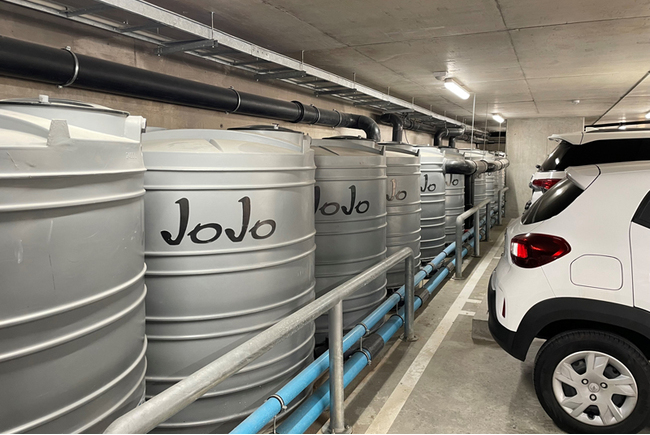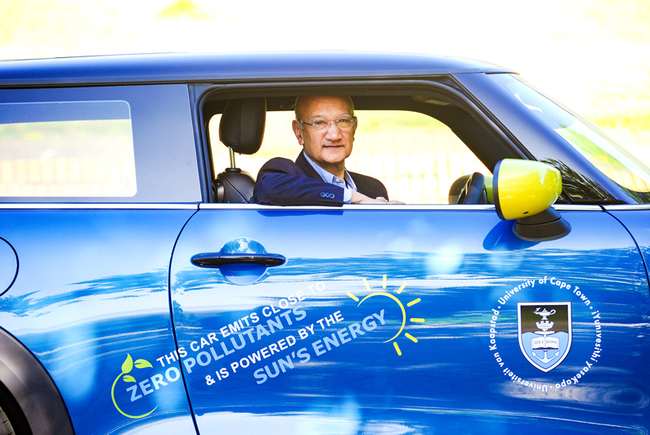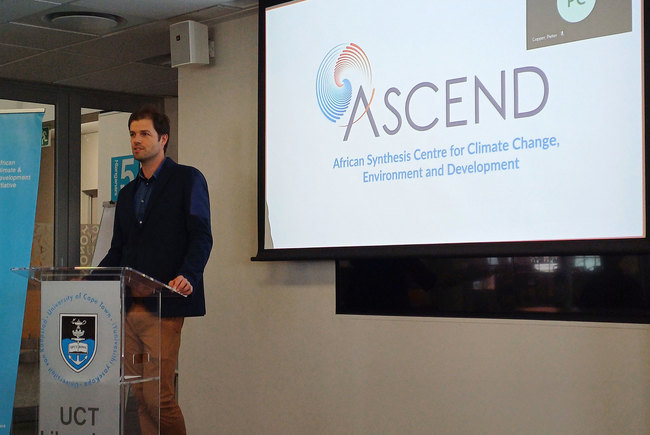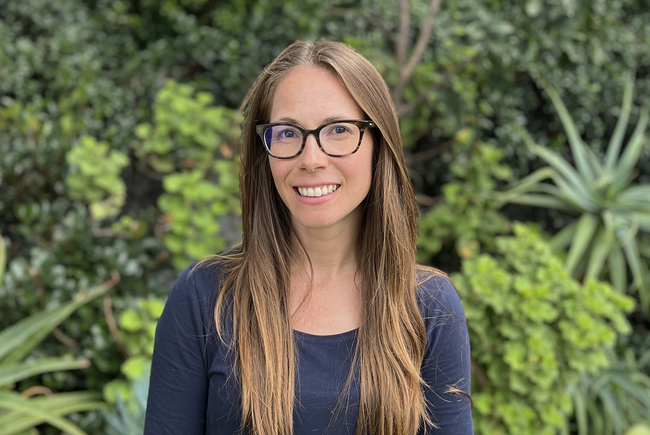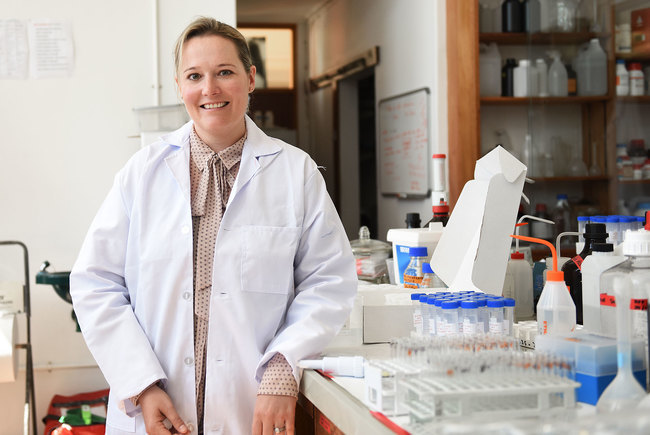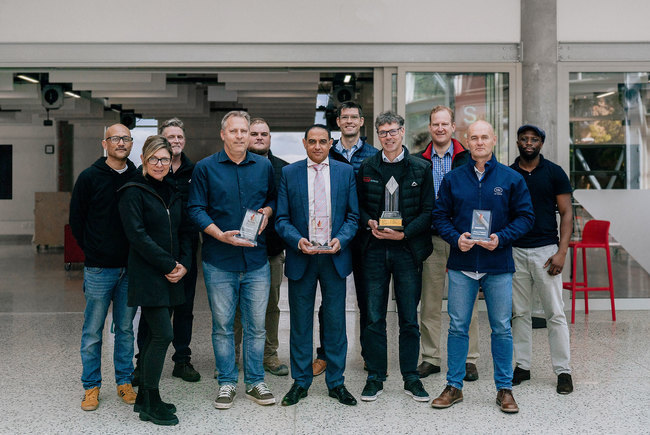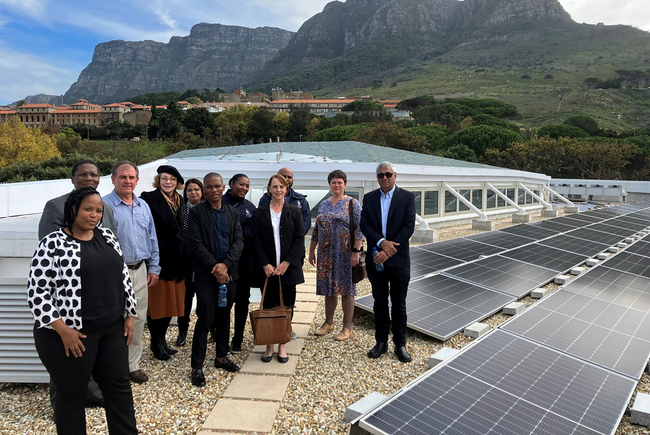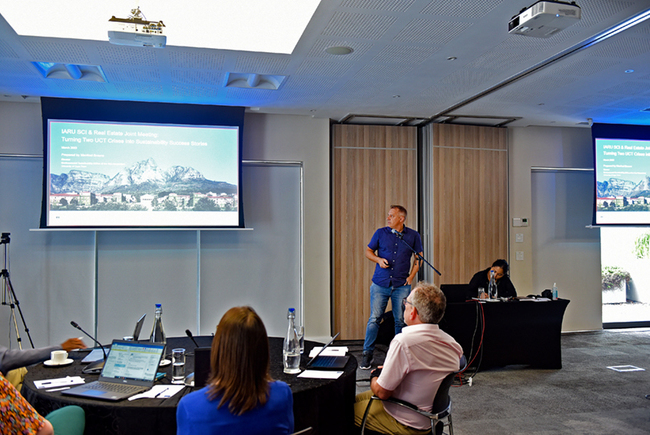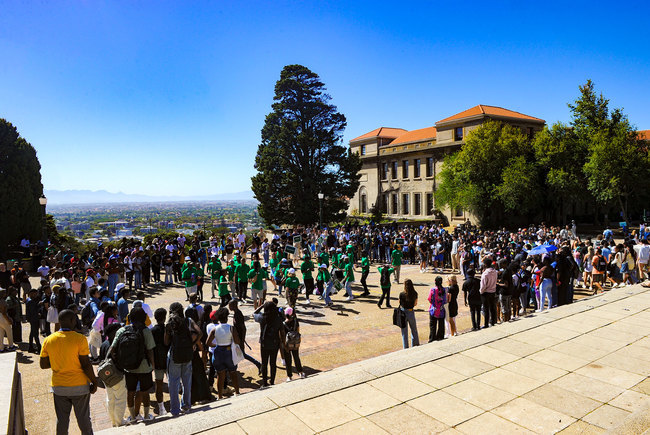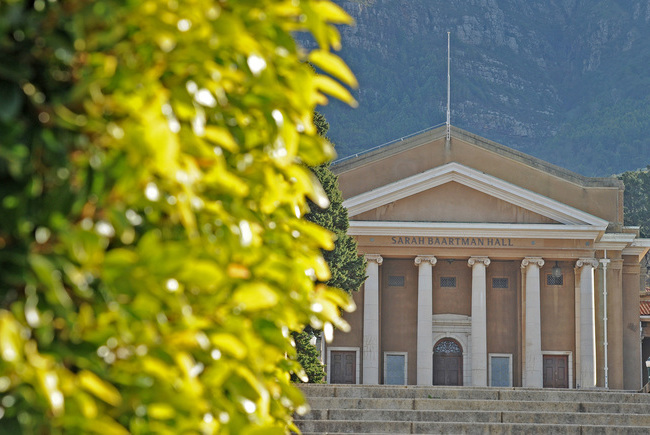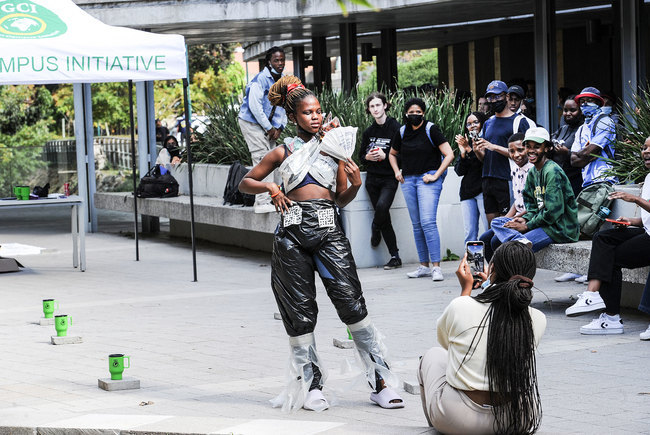UCT prioritises sustainability through ‘Khusela Ikamva’ project
09 May 2022 | Director Roxanne Harris. Videography Ruairi Abrahams and self-recordings. Video edit Kamvelihle Stemela. Photo Lerato Maduna.In 2020 the Vice Chancellor, Professor Mamokgethi Phakeng, put out a call to the UCT community to submit proposals for collaborative, cross disciplinary five-year research proposals that would help catalyse UCT’s intent to become a sustainable campus, which is a key pillar of UCT’s Vision 2030.
There were multiple respondents to this call, and the selection committee chose four proposals which were then combined into one larger project team to form what is called the “Khusela Ikamva” Sustainable Campus project.
The project sees the university using its campuses as living laboratories for collective innovation, to reduce its ecological footprint and make UCT, and by extension society more sustainable.
Please visit https://bit.ly/Khuselaikamva-YT for more information about the project.
If you would like to donate to this project you can visit https://bit.ly/Donate-UCT.
https://bit.ly/Khuselaikamva-YT.
 This work is licensed under a Creative Commons Attribution-NoDerivatives 4.0 International License.
This work is licensed under a Creative Commons Attribution-NoDerivatives 4.0 International License.
Please view the republishing articles page for more information.
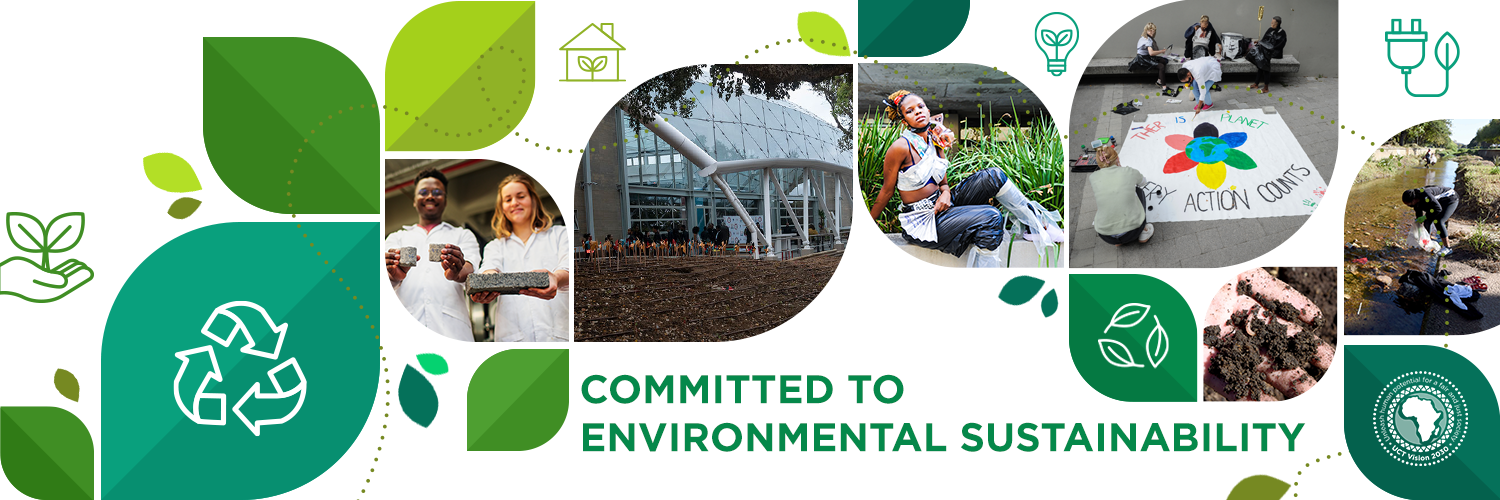
Committed to Environmental Sustainability
The University of Cape Town’s (UCT) Vision 2030 strategy’s goal is to unleash human potential in pursuing a just and equitable society. This vision rests on three fundamental pillars: sustainability, excellence, and transformation. In line with this strategy, the university has developed different initiatives, including a sustainability strategy, to provide direction for UCT’s environmental sustainability. This strengthens the university’s ambitions of being a net-zero carbon/energy, water, and waste-to-landfill campus by or before 2050.
UCT Sustainability and the SDGs 2022
UCT is committed to addressing the most critical problems facing the continent and the rest of the world. This report tracks the progress UCT is making towards the United Nation’s Sustainable Development Goals and the African Union Agenda 2063.
Download the PDF version | Read the full report:
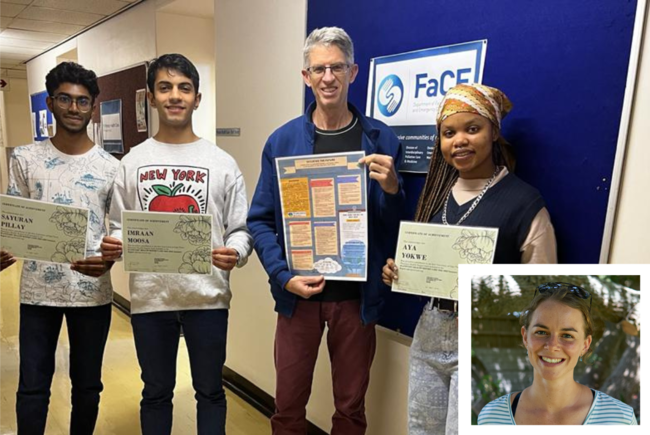
The University of Cape Town’s (UCT) Faculty of Health Sciences (FHS) took part in their first scorecard for the Planetary Health Report Card (PHRC), a global student-led initiative to promote education about planetary health and environmentally sustainable healthcare in health science campuses
31 May 2023 - 4 min read
“We learnt some valuable lessons during [COVID-19] lockdown that we will take into the future, many of them contributing to more efficient and environmentally sustainable digital methods for doing certain things.”
– Manfred Braune, the director for environmental sustainability at UCT






